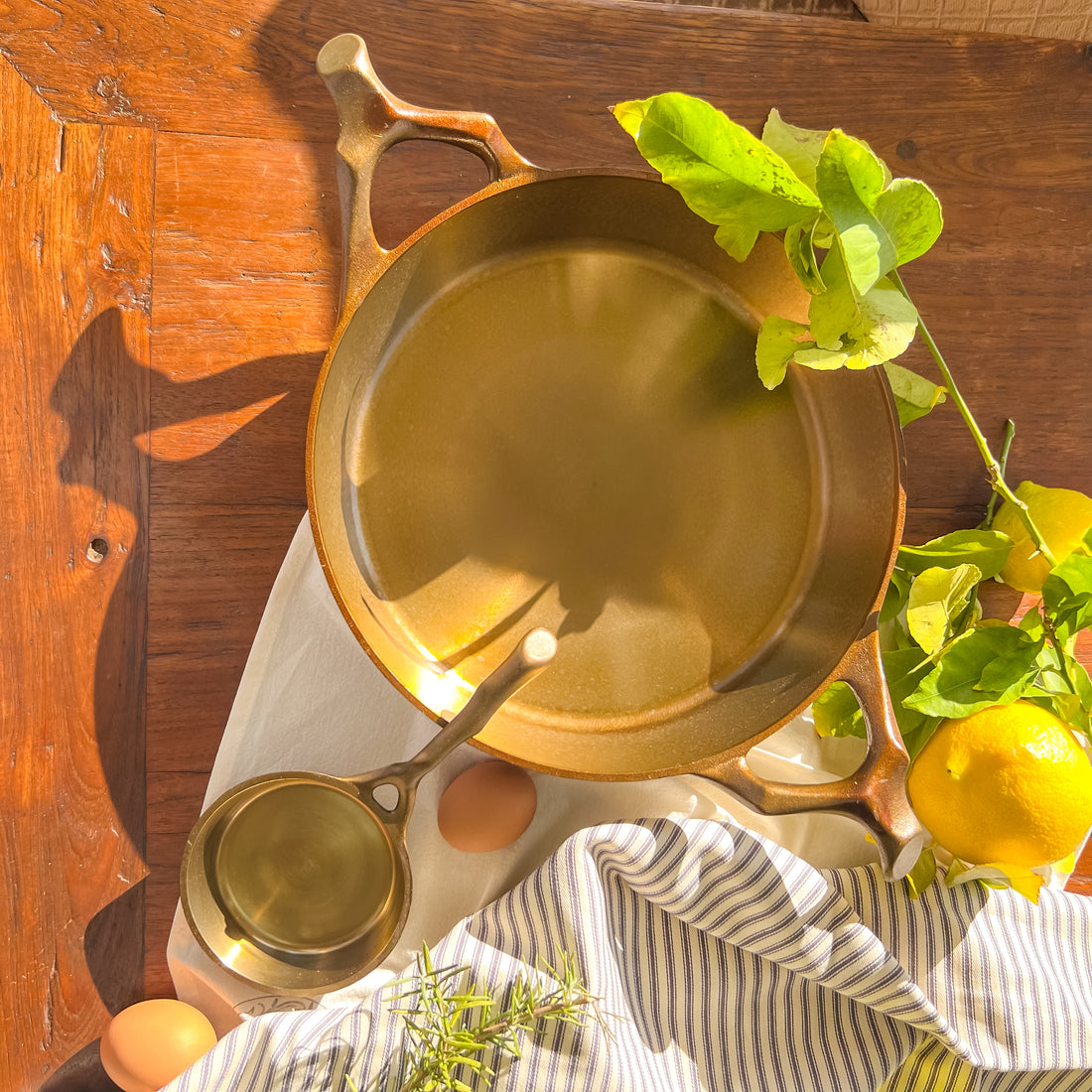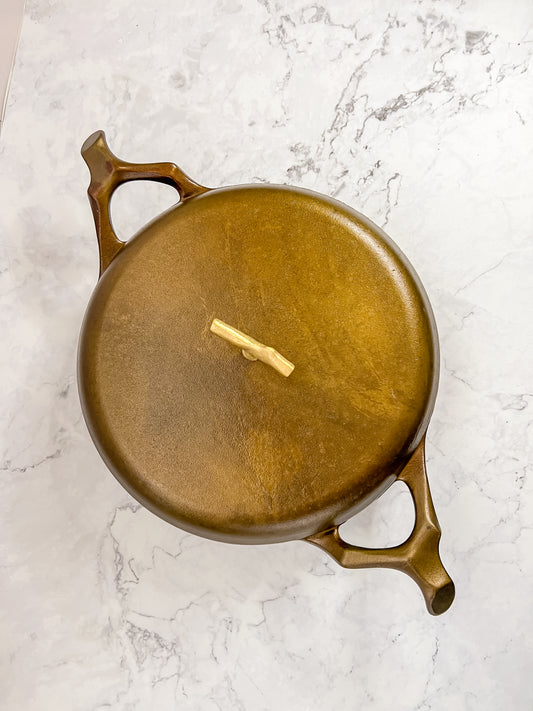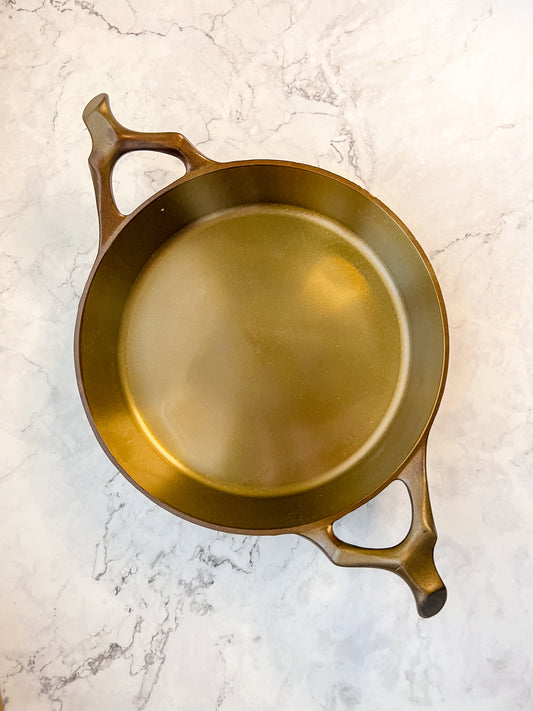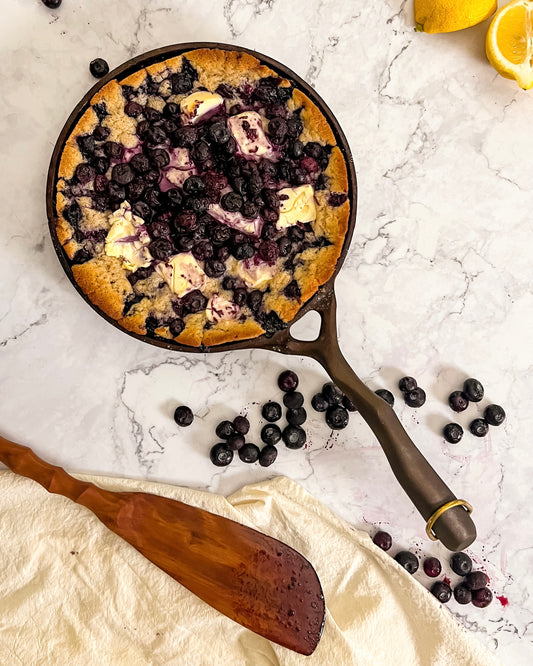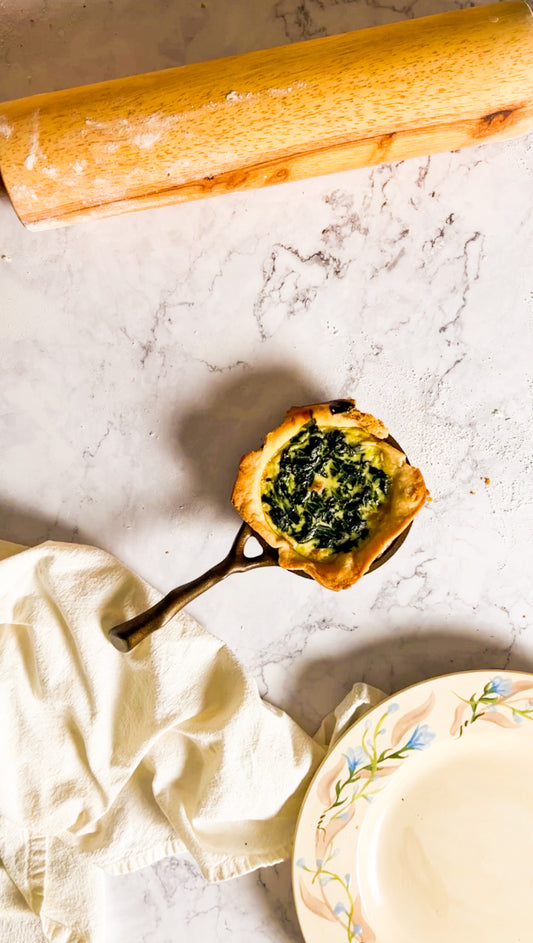For first time cast iron owners the idea of the elusive "seasoning" may be a bit intimidating. Is my pan seasoned? How do I season it?
Is it really that important? What is seasoning anyway? Will my skillet spontaneously combust if it's not seasoned?
Phew, let's take a deep breath and walk through it.
In A Nutshell
Seasoning is the process of applying oil to cast iron cookware and then baking it on, creating hardened layers that protect it from rusting and act as a natural non-stick coating. This is what gives cast iron cookware its non-stick properties. The thicker the seasoning, the more "non-stick" your cookware will be.
Polymerization
Let's be nerds for a second and get into the science of seasoning.
Cast iron seasoning is created through a process called polymerization. On a molecular level, cast iron has a rough, uneven surface. When fats and oils are brought to a high enough temperature, they break down and bond to the iron; creating a new hardened seal and filling in the microscopic surface of the metal. The coating becomes stronger with each use, resulting in a smooth non-stick surface. Eventually, you end up with a piece that is a true heirloom, that will last for generations.
As for the question of how important the seasoning is? Well, as I stated above, seasoning creates a layer of protection against rust. So, worst case, without seasoning your iron cookware could corrode and rust due to the oxygen and moisture in the air. Best case, you'll have an annoyingly sticky pan. So it's pretty important. Luckily, the cast iron at Earthbound is already seasoned twice, so you've got a head start.
Which Oil Do I Use?
Really any oil is fine for seasoning, you just have to make sure that you heat your oven up to the smoke point of your chosen oil. The reason is that the polymerization will be better the more the oil breaks down. That being said, oils with low smoke points are a safe bet; think flaxseed, olive, coconut and grape-seed oil. Just be warned that some will leave a taste behind or have a strong smell. Which isn't necessarily good or bad, just something to think about. I personally like using olive oil or coconut oil, just because they are always on hand and have pretty low smoke points.
How to Season Your Cookware
The easiest way to start your seasoning is to cook! Some may call this passive seasoning. With a fresh pan, I would recommend using more oil/fat than you normally would. Don't be afraid of the calorie count, some of it is going into your pan.
If you want to speed up the seasoning process with dedicated seasoning, follow these steps.
1. Wash and dry your iron - you can follow these steps if you're not sure how to do that.
2. Apply a very thin coat of oil to your pan.
3. Wipe all the excess oil off your pan and place in the oven upside down with a cookie sheet or tin foil on the rack beneath it.
4. Turn your oven on and set the temperature to 400ºF. To be clear, we want the cast iron to heat up with the oven. When the oven reaches 400ºF, bake for 1 hour.
5. Turn your oven off, and let your pan cool down slowly and naturally inside.
Now you have a new layer of seasoning on your pan.
Some Final Notes
If the surface of your pan comes out gummy or sticky ( a problem I have ran into) it just means that you used too much oil or you didn't heat it for long enough. Easy fix, just throw it back in the oven for another hour or until it's not sticky anymore.
Try to stay away from highly acidic foods like citrus and tomato. A dash here and there won't hurt but more than that will start to eat through your seasoning.
Sometimes your cast iron will flake, don't panic, this is not your actual iron coming apart. It's just part of the seasoning that didn't bond to the metal properly. Give it a good scrub with some warm water and season it again.
Lastly, your cast Iron will naturally get darker with each use. This is a good sign! It means you're building up an awesome seasoning.
Now that you're a cast iron expert, check out Earthbounds cast iron below and get to cookin'!
